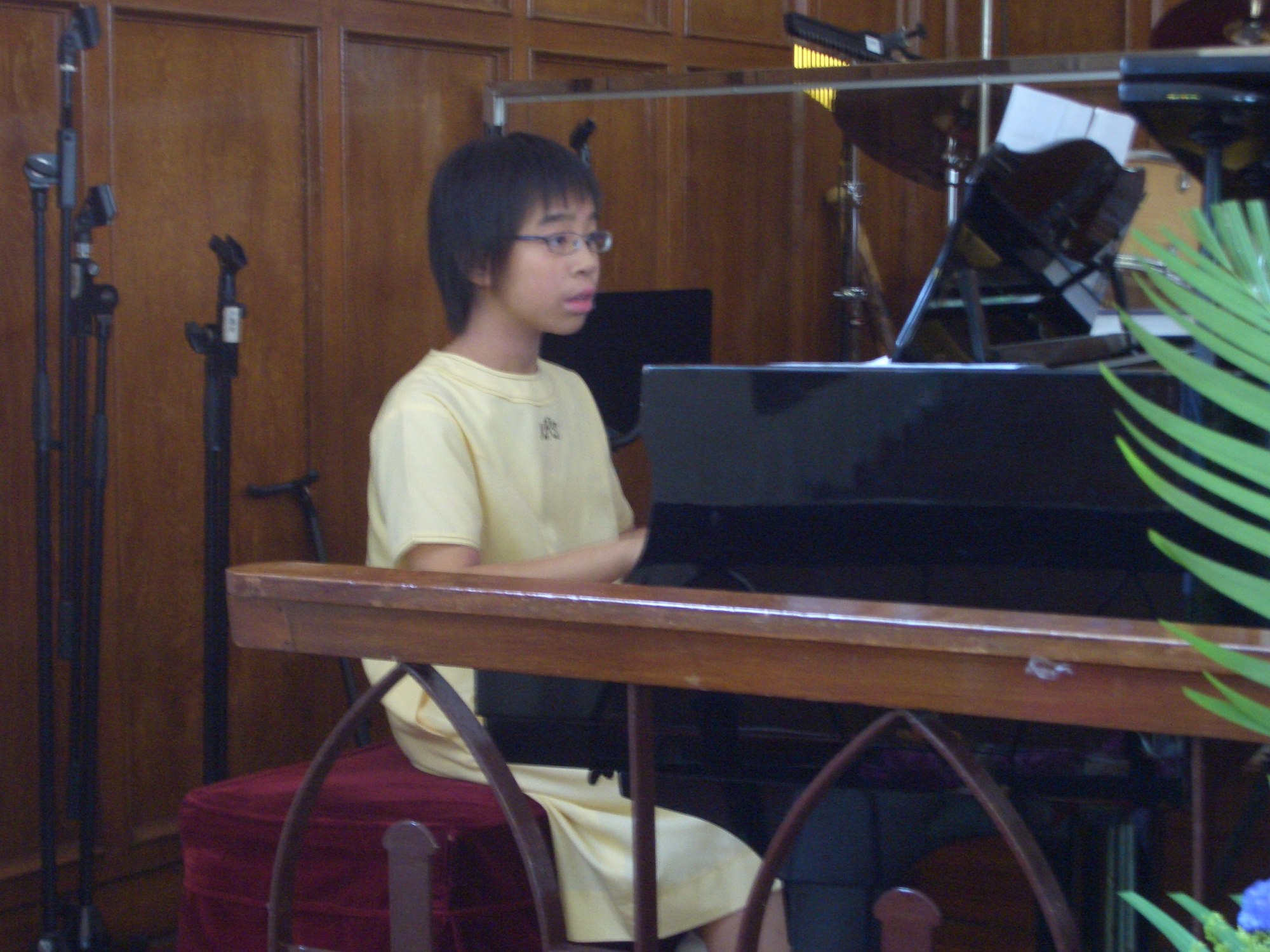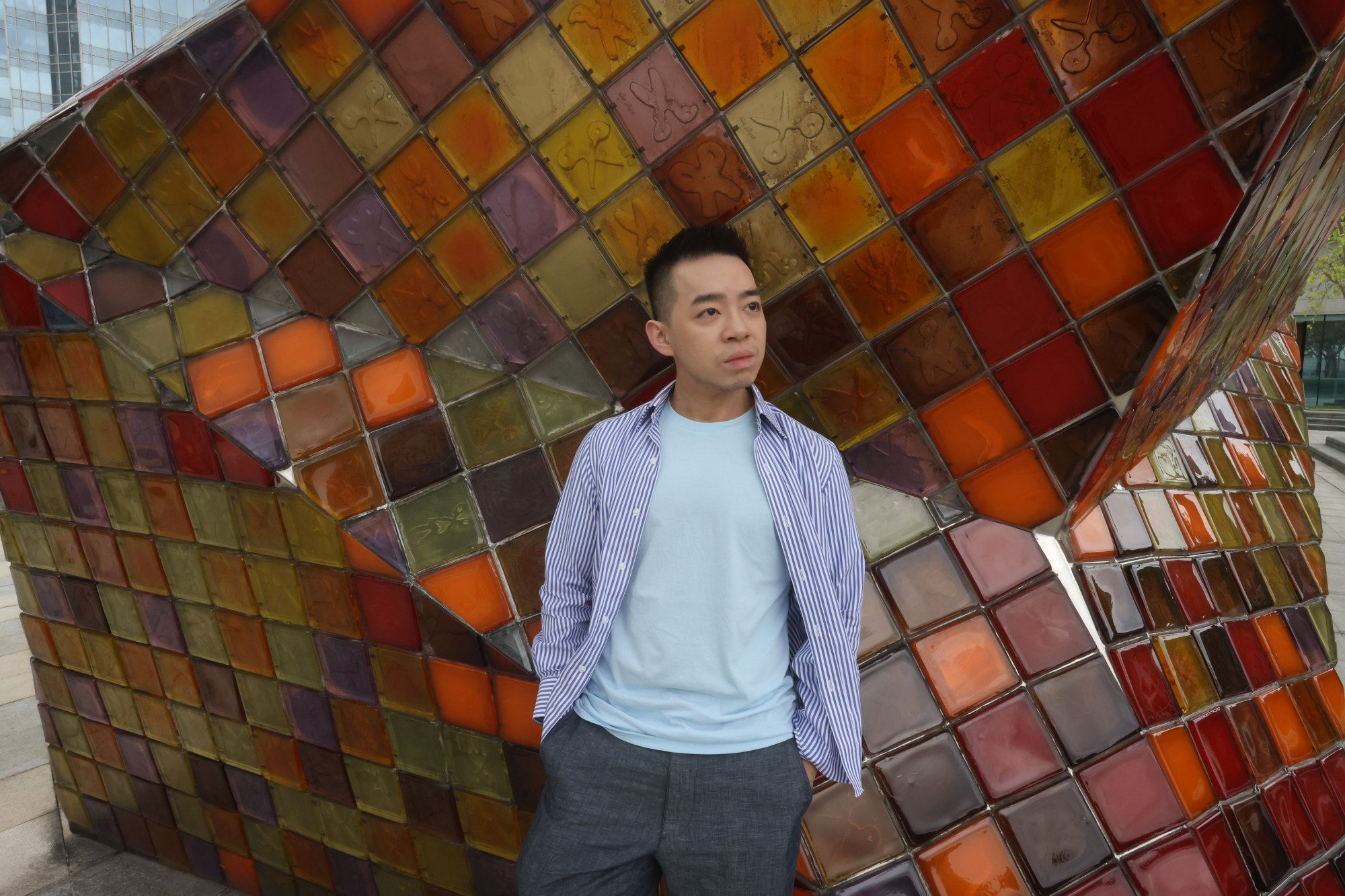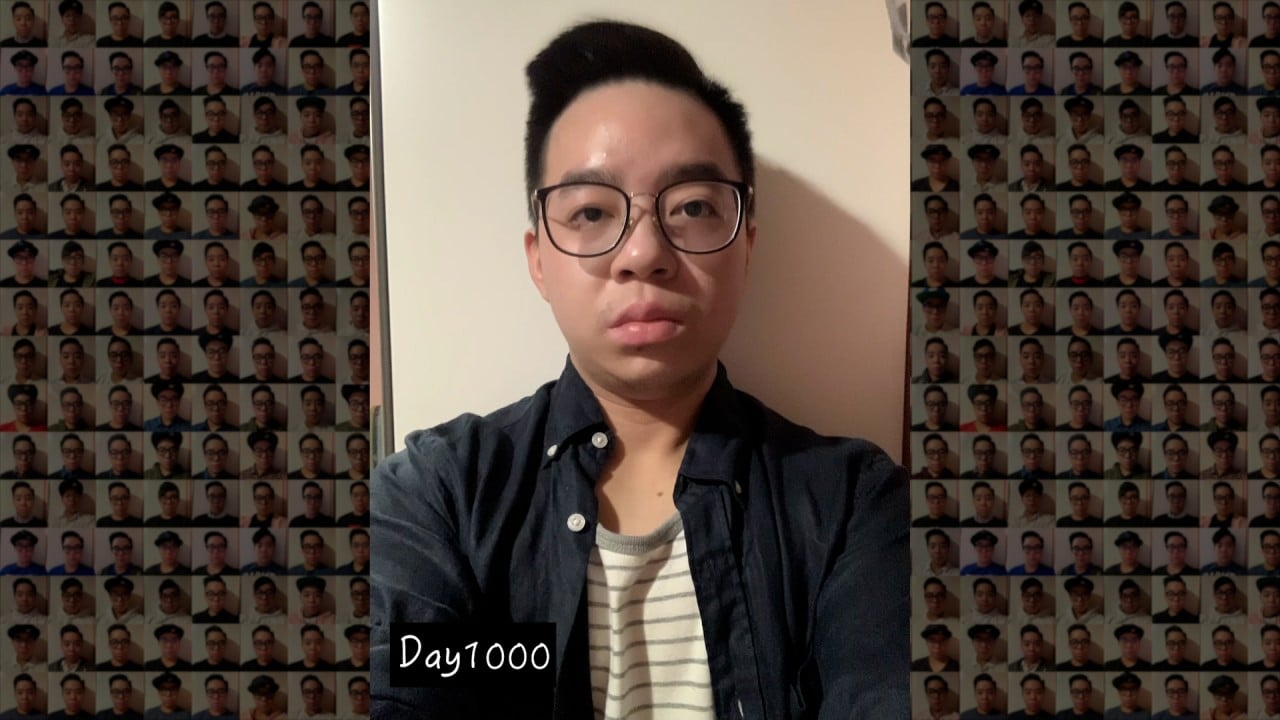
Hong Kong singer’s transgender journey, and new song with lyrics sung before and after gender transition and surgery
- Hong Kong singer SY’s song Obstacle Course has lyrics recorded before his transition began, and after taking testosterone and having gender-affirming surgery
- Assigned female at birth, SY experienced years of self-loathing and confusion before transitioning to male in his 20s. Now he helps others by sharing his story
Musicians often trawl their hearts and souls when seeking inspiration for lyrics. Hong Kong singer-songwriter Xavian Wu Siu-yin, who goes by the artist name SY, dug extra deep.
In his song “Obstacle Course”, released in February, SY explores his transition journey. Assigned female at birth, SY transitioned to male in his early 20s.
What makes the song so unique is that the Chinese version features lyrics sung by SY before and after his transition.
“It starts with a female voice because it was originally recorded in 2018, before I started my transition,” says SY, who turns 30 this month.
In 2019, his vocal cords started changing as a result of taking the male hormone testosterone.
“My voice got so deep that people kept asking me if I had a cold,” he says. “I had to adapt to my new vocal range and learn how to use my new voice from scratch.”
With the song recorded in both a female and male voice, SY had a light-bulb moment to blend the two.
He also applied his post-production experience to the music video, which features close-ups of his body, including large scars from his double-incision mastectomy, the procedure of having both breasts removed.

The surgery, which also included nipple grafts – when tissue is moved from one part of the body to reconstruct the nipples – was carried out in a hospital in Thailand’s capital, Bangkok, in 2020.
Today, SY is in the best shape he has ever been – both mentally and physically. He plans to release four songs this year shaped around the theme of self-care and is toying with releasing a “duet with myself”, again mixing the two versions of the song.
“I also want to learn the harmonica,” he says. “And who knows, maybe even a film telling my story?”
‘Mentally collapsed’: gay ‘conversion therapy’ survivors in Hong Kong
With his creative juices flowing fast, it is difficult to picture SY as the anxious teen who spent most of his youth hiding in his bedroom, avoiding family gatherings for fear of being misgendered.
He spent years battling gender dysphoria, the distress caused when one’s biological sex does not match their gender identity.
There was a lot of self-loathing.

He hated his high-pitched voice, shopping for female clothes, wearing a school uniform. The mirror was his enemy. He also had a visceral hatred of the English name his parents had given him. Even today, the mention of it is triggering.
“And I was always dehydrated because I didn’t drink water from 6am to 6pm out of fear of having to use the female toilet at school.”
While today there is more awareness and access to information on transgender issues, back then, he says, there was very little, and he did not have the vocabulary to articulate his feelings.
“I thought I was a tomboy who was attracted to girls but I didn’t want to be a tomboy and I didn’t like it when people called me a lesbian, even though I was attracted to girls … I just identified myself as a man.
“I tried explaining my feelings to friends but no one understood me.”

Feeling alienated, he twice attempted suicide: once trying to suffocate himself with a blanket, another time slicing his wrist with a paper cutter.
“The scar has faded,” he says, pulling back the sleeve of his shirt. “I was so upset every day but didn’t know why. I couldn’t enjoy my life – I had no hope and couldn’t see a future.”
It was only after watching a documentary about Hong Kong’s transgender community on Now TV’s Medicine Online, in 2017, that he began to connect the dots.
“It was the first time that I realised that there were people out there who felt the same as me,” he says. When the show ended, his research began.

Today he recalls the joy of when his hormone therapy was approved and how he raced to the hospital that same day.
“I was so excited to get the injections from the clinic. I was not waiting another day.”
For many, taking gender-affirming hormones is not just life-changing but potentially life-saving.
A 2023 Australian study, published in The Journal of the American Medical Association (JAMA), found that transgender adults who have access to timely testosterone therapy had a significantly reduced risk of gender dysphoria, depression and suicidality.

At a cafe in Hong Kong’s Central district, SY shows a video, a compilation of self-portraits taken daily over three years. Similar videos that capture people’s ageing process are popular on social media.
What makes SY’s video so special, however, is that it also shows his transition characteristics: the growth of facial hair and changes to the shape of his face.
The video was over in a minute. His journey, however, has been long and emotional, but he is seeing some progress for trans rights in Hong Kong.
While the court decision is a step in the right direction, the rule shift still requires invasive surgery: the removal of breasts for transgender men, and removal of penis and testes for transgender women, which some activists say are too extreme. They must also undergo continuous hormonal treatment for at least two years before the application for a gender change can be made.
If telling my story and sharing it through music helps just one person then it has been worth it
And while Hong Kong’s public hospital system has a gender identity clinic – at Prince of Wales Hospital – what is lacking in the city, SY says, are doctors specialising in trans procedures. At the moment, people have to join long waiting lists or go overseas for surgery.
“My mum came with me and slept on a couch in the hospital – she was so supportive. I didn’t shed a tear, and believe the excitement and relief of finally having my breasts removed numbed any pain.”

For years before his surgery, SY wore a chest binder to flatten his breasts, a common practice among transgender individuals assigned female at birth.
“It was so uncomfortable, especially in Hong Kong’s hot and humid summers,” he says, adding it was so tight that it cut into his skin after wearing it all day.
Today, SY is an open book. He has taken part in a number of Human Library events – events where people are “on loan” to attendees for a personal conversation – including a gender-issues workshop hosted in April by the Hong Kong Polytechnic University.
“I was a ‘book’ sharing my ‘content’ – a human library,” he says of the movement that started in Denmark in 2000.

One motivator for sharing his story, he says, is so that others, in particular children and teens who are questioning their gender, do not go through what he did.
“If telling my story and sharing it through music helps just one person then it has been worth it,” he says, adding that songwriting has been cathartic.
“‘Obstacle Course’ is about learning to embrace yourself, to triumph over challenges.”
The artwork for the music video’s English version is poignant: a small human figure, drifting in outer space, arms outstretched, desperately trying to make a connection with Earth.

Also poignant are the lyrics:
I worry what others might think, I cry when people laugh, it makes me shrink, I don’t know what others might think I just know that I’ll be myself.
I am odd, I am new, I pretend that you are too. I feel like a boy in outer space. I touch the stars and feel out of place.
When he started posting music videos, SY was worried people would leave negative comments. He was wrong.
“People have been so supportive. It is so encouraging.”


